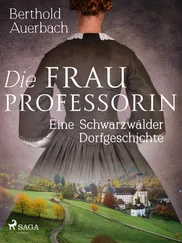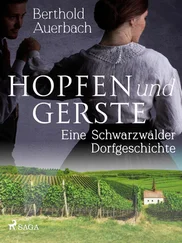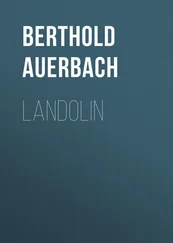Berthold Auerbach - Waldfried - A Novel
Здесь есть возможность читать онлайн «Berthold Auerbach - Waldfried - A Novel» — ознакомительный отрывок электронной книги совершенно бесплатно, а после прочтения отрывка купить полную версию. В некоторых случаях можно слушать аудио, скачать через торрент в формате fb2 и присутствует краткое содержание. ISBN: , Жанр: foreign_antique, foreign_prose, на английском языке. Описание произведения, (предисловие) а так же отзывы посетителей доступны на портале библиотеки ЛибКат.
- Название:Waldfried: A Novel
- Автор:
- Жанр:
- Год:неизвестен
- ISBN:http://www.gutenberg.org/ebooks/32446
- Рейтинг книги:3 / 5. Голосов: 1
-
Избранное:Добавить в избранное
- Отзывы:
-
Ваша оценка:
- 60
- 1
- 2
- 3
- 4
- 5
Waldfried: A Novel: краткое содержание, описание и аннотация
Предлагаем к чтению аннотацию, описание, краткое содержание или предисловие (зависит от того, что написал сам автор книги «Waldfried: A Novel»). Если вы не нашли необходимую информацию о книге — напишите в комментариях, мы постараемся отыскать её.
Waldfried: A Novel — читать онлайн ознакомительный отрывок
Ниже представлен текст книги, разбитый по страницам. Система сохранения места последней прочитанной страницы, позволяет с удобством читать онлайн бесплатно книгу «Waldfried: A Novel», без необходимости каждый раз заново искать на чём Вы остановились. Поставьте закладку, и сможете в любой момент перейти на страницу, на которой закончили чтение.
Интервал:
Закладка:
"Curse him!" cried Ernst; "I would not have missed aim."
I reproved him with great severity, but he insisted that one had a right to commit murder. I replied that no one would ever have that right, and that this deed had been as culpable as the assassination of Abraham Lincoln; for if any one man has the right to be both the judge and the executioner of his enemies, you will have to accord the privilege to the democrat as well as to the aristocrat.
"Let us cease this quarrelling," he answered; "I have no desire to dispute with you. I am firm in my belief that one is justified in doing wrong for the sake of bringing about a good result. But, I beg of you, father, let us now and forever cease this quarrelling."
His face showed his conflicting emotions, and he kissed my hand when I gently stroked his face.
The crowd had dispersed in the meanwhile, and we proceeded on our way.
Ernst suddenly stopped and said to me: "Farewell, father. Give my love to mother and Martella."
He held on to my hand quite firmly for a moment or two longer, and then said, "I must go to the barracks."
His eyes plainly told me that he would like to say more that he could not express; but he merely nodded, and then turning on his heel, departed.
"Write to us often!" I called out to him. He did not look back.
I followed after him for a while, keeping near enough to hear his firm step and the rattling of his spurs. I fondly hoped that he would yet return to me, and tell me of the thoughts that oppressed his heart.
I met many acquaintances on the way, who saluted me and extended their hands. They wanted me to stop and talk with them, but I merely nodded and passed on.
In my eager haste I ran against many people, for I did not want to lose sight of my son. There he goes! Now he stands still-now he turns. Surely- At that moment a company of soldiers marched down the street to the sound of lively music; we were now separated. I could not see my son again. I returned to Bertha and the Major, and the latter promised me to keep a watchful eye on Ernst, and to send us frequent tidings in regard to him, in case he should neglect to write.
I rode to the depot. I was fearfully tired, and felt as if I could not walk another step.
As the trains were quite irregular, I was obliged to wait there for a long while.
I felt-no, I cannot-I dare not-revive the painful emotions that rent my bosom. Of what avail would it be? My son was going forth to war, and I had brought him here, myself.
"Brother fighting against brother." I fancied that I had been talking to myself and had uttered these words; but I found that they were frequently repeated by the excited groups that were scattered about the depot. All about me there was ceaseless turmoil. People were rushing to and fro, yelling, shouting, cursing, and laughing. I sat there absorbed in thought, not caring to see or hear anything more of the world, when a familiar voice said to me, "How charming, father, that I should meet you here!"
My son Richard stood before me; he had finished his lectures and was about to return home.
Accompanied by him, I started for home.
Richard informed me of the political divisions among the professors, and thus afforded me a glimpse of a sphere of life entirely different from my own. Even the immovable altars of science were now trembling, and personal feeling had become so violent that the friends of Prussia, of whom Richard was one, could not appear in public without being subjected to insults. On our way home, we stopped for dinner at the garrison town, where we heard the most contemptuous allusions to the "Prussian braggarts," as they were termed.
It was said that they had no officers who had ever smelt powder. That what had been done in Schleswig-Holstein had been achieved by the Austrians; and that if they ever dared go so far as to fight, they would be sent home in disgrace.
I do not know whether they really believed what they said, or whether they were simply trying to keep up their courage. But, on every hand, one could hear them say, "They will not let matters proceed so far; they are loud talkers and nothing else."
I was quite beside myself; but Richard begged me to remain silent. He thought it was well that matters had come to this pass.
Whoever had brought on this war had assumed a great, but perhaps unavoidable, responsibility. It was the sad fiat of fate, and none could foretell where the sacrifice and suffering would end. History would march on in its appointed path, even though sin and suffering be its steppingstones.
And then he pointed to our surroundings, and added, "Such fellows as these will never be converted by speeches; nothing but a thorough beating will teach them reason."
I have found that sober history tells us very little of all those things. She brings the harvest under shelter and enters the result; but who stops to ask how the weather may have changed while the grain was ripening?
But to us who live in the present, such things are not trifles; and I cannot help maintaining that the war of 1866 was forced on the people against their will, as far as I can judge, and I have spoken to many on the subject. The Prussians did not desire war; the conservatives did certainly not wish for it, for Austria was, spite of all, the bulwark of their principles. The liberals did not want it; nor did the soldiers go forth with cheerful hearts. But necessity had become incarnate in the brain of a single statesman: separation from Austria was the end to be gained, and though it went hard, that result must be achieved.
Конец ознакомительного фрагмента.
Текст предоставлен ООО «ЛитРес».
Прочитайте эту книгу целиком, купив полную легальную версию на ЛитРес.
Безопасно оплатить книгу можно банковской картой Visa, MasterCard, Maestro, со счета мобильного телефона, с платежного терминала, в салоне МТС или Связной, через PayPal, WebMoney, Яндекс.Деньги, QIWI Кошелек, бонусными картами или другим удобным Вам способом.
1
Throughout, the translator will, according to the German custom, use the word "bride" to designate a woman who is only betrothed.
2
This name means: Lizzy, the huntress.
3
Director or governor of the district or department.
Интервал:
Закладка:
Похожие книги на «Waldfried: A Novel»
Представляем Вашему вниманию похожие книги на «Waldfried: A Novel» списком для выбора. Мы отобрали схожую по названию и смыслу литературу в надежде предоставить читателям больше вариантов отыскать новые, интересные, ещё непрочитанные произведения.
Обсуждение, отзывы о книге «Waldfried: A Novel» и просто собственные мнения читателей. Оставьте ваши комментарии, напишите, что Вы думаете о произведении, его смысле или главных героях. Укажите что конкретно понравилось, а что нет, и почему Вы так считаете.












